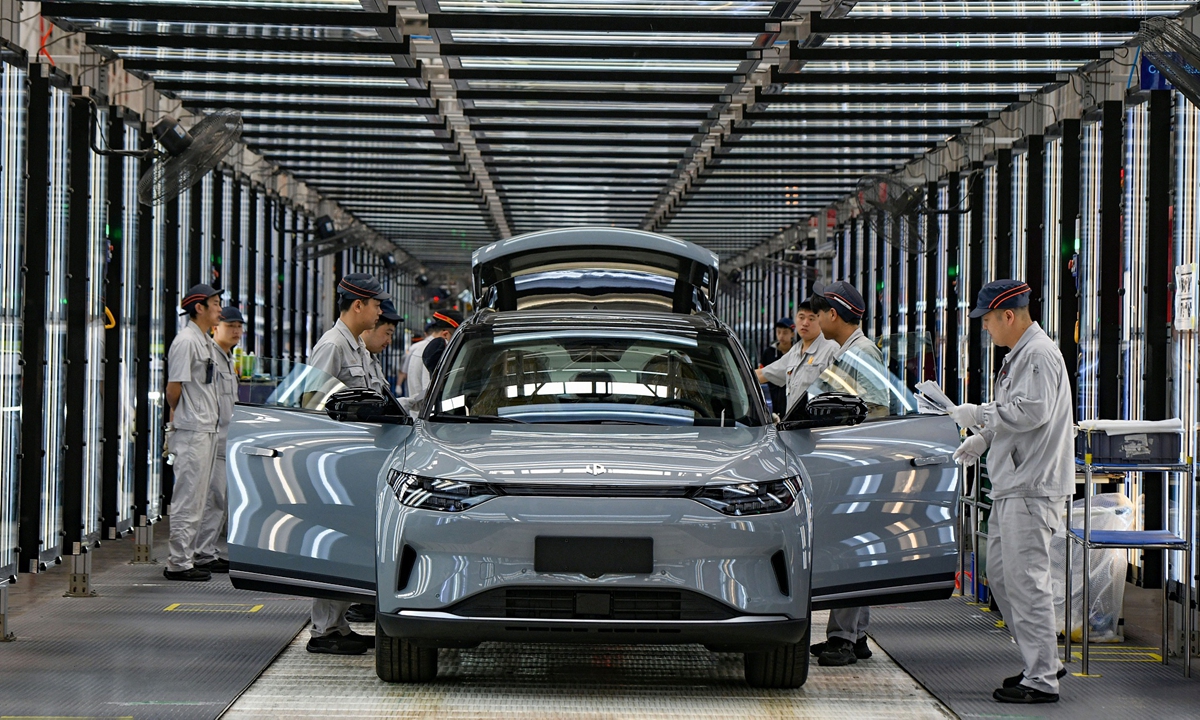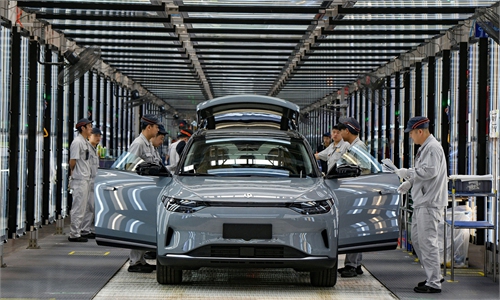
Workers complete assembling an electric vehicle (EV) at China's EV start-up Leapmotor in Jinhua, East China's Zhejiang Province on April 1, 2024. The smart EV factory delivered 14,567 new vehicles in March, a yearly increase of 136 percent. Photo: VCG
China's Commerce Ministry on Wednesday expressed firm opposition to the proposed US ban on Chinese software and hardware in connected vehicles, calling on the US to immediately withdraw relevant restrictive measures and vowing to take all necessary measures to safeguard the legitimate rights and interests of Chinese firms.
A spokesperson for the MOFCOM said that the Chinese side firmly opposes the proposed regulation, while noting Washington's additional tariffs, restrictions and discriminatory policies against Chinese vehicles.
The spokesperson slammed the US for using the pretext of "national security" to smear Chinese software and hardware in connected vehicles as "unsafe" to restrict their use in the US.
"The US approach has no factual basis, violates the principles of the market economy and fair competition, and is a typical protectionist action," the spokesperson said, noting that the US use of government power to interfere in commercial cooperation is non-market action and constitutes economic coercion.
"China urges the US side to immediately withdraw the proposed restrictions and stop unreasonable suppression of Chinese companies. China will take necessary measures to resolutely safeguard the legitimate rights and interests of Chinese enterprises," the MOFCOM spokesperson said.
The proposed US ban comes after Washington recently announced a 100 percent import tariff on Chinese EVs, in an attempt to crack down on the fast-growing Chinese EV industry. The US crackdown measures will undermine China-US cooperation, hurt US companies and consumers, and harm the global auto industry, Chinese experts said.
"While the restrictions mean Chinese auto software and hardware will be essentially barred from entering the US market, they also mean some US companies and consumers will face losses," said Xiang Ligang, director-general of the Beijing-based Information Consumption Alliance.
Global Times



